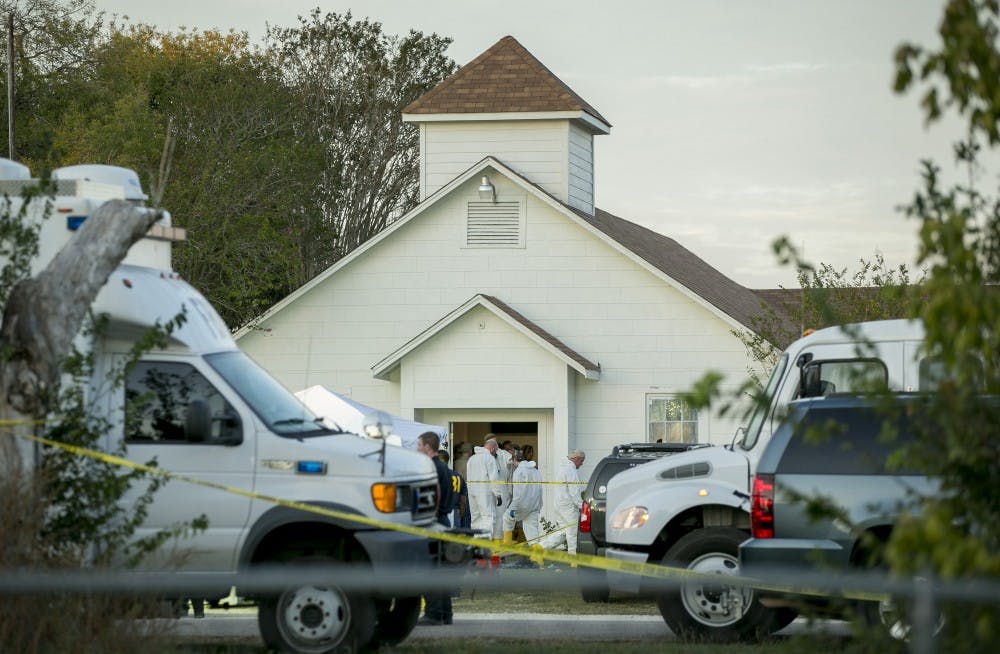After a shooting Tuesday morning that left five dead and ten injured — including the gunman’s wife, who he murdered before turning his weapon on the people outside his home — gun violence is in the news again. Not that it really had time to leave it after the Sutherland Springs church shooting. Fortunately, although Kevin Neal’s sister says he has struggled with mental illness, uninformed gun control activists have yet to turn on the mentally ill in this particular case — because they’ve been distracted by an alternate explanation, which has been in the news since the Texas shooting: domestic violence, mostly against women in this case.
Don’t get me wrong, this isn’t like mental illness — the correlation between domestic violence and mass shootings is definitely real; it’s definitely important to recognize it, because (unlike mental illness) it has real potential to help us keep guns out of the hands of people who are likely to use them on other people.
I have just one gripe with the way we’re covering the relationship: We didn’t cover it sooner.
It’s not like we didn’t know about it. The guy who shot up the GOP baseball practice this summer had a history of violence against women in his home. The Orlando shooter’s background shows more of the same. In fact, of the ten deadliest mass shootings that have occurred in the U.S., nine of the perpetrators had “committed violence against women, threatened violence against women, or disparaged women.” It’s a pretty well-established connection, as tweeted by the New Yorker: “It’s time to recognize domestic violence and misogynistic anger for the warning signs they often are.”
Things like this should be obvious. When you boil the correlation of domestic abusers committing mass shootings down to its essentials, you come out with the sentence “violence predicts violence.”
So why haven’t we talked about this sooner? I can’t help but think that it’s partly thanks to the fact that, as a culture, we’re really bad at listening to women. Look at the women of Hollywood finally talking about what happened to them years ago. Some of them are coming forward in the rush after the Weinstein accusations, but some of them tried to talk about it much earlier. We weren’t ready to hear about it, so they got pushed down.
Look at the women who have been harassed or assaulted by Bill Clinton, George H.W. Bush and Donald Trump. Some of those women who have spoken up (particularly the ones accusing politicians) have seen no satisfaction for those complaints. One of Clinton’s accusers tried to tell her story, but the network she gave her interview to held it back until after his impeachment trial.
We’re talking about sexual assault now as part of the process of breaking free from our entrenched habit of ignoring women’s voices. We’re talking about domestic violence now, but any woman who has ever been physically abused could have told us that her abuser was dangerous and violent. This correlation shouldn’t come as a surprise to us, partially because of common sense, but partially because we should view the domestic violence accusations against a man not as an ignorable black spot on his record, but as an indication that he is a dangerous, violent person. (I’m talking to the fans of Johnny Depp, Sean Penn, Mel Gibson and many more.)
The fact that we don’t already think this indicates that we don’t listen to women’s voices. If we did, we wouldn’t be surprised to hear that hurting the women you supposedly love is a warning that you might also be willing to hurt strangers.
I hope we actually do something with this information — like closing the boyfriend loophole, which essentially allows men who have abused their girlfriends rather than their wives to escape the title of “domestic abuser” and therefore purchase firearms. But I can’t say the fact that we’re only now realizing that abusers are dangerous gives me much hope of that.

